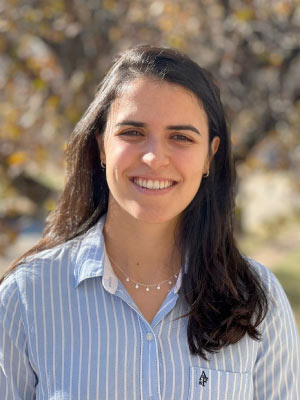Buckle up and hit the gas … or should it be electricity? With the anticipated transition to electric vehicles, our terminology for cars won’t be the only thing needing change as counties across Wisconsin must adapt for electric vehicle infrastructure. Outagamie County in northeast Wisconsin is no exception and has partnered with the Energy Analysis and Policy (EAP) graduate certificate at UW–Madison to create a report that will guide county officials as they aim to support electric vehicles.
Scott Williams, EAP certificate coordinator and an EAP alumnus himself, was introduced to the Outagamie County electric vehicle project through UniverCity Year, a university program that connects Wisconsin communities and campus resources to solve local challenges.
As part of their capstone course requirement, EAP certificate students form groups to create a semester-long project for an outside client. This year, the EAP certificate has 14 students enrolled with four capstone projects in the works. No two projects are the same, as Williams strives to offer a mix of government, nonprofit, and private sector clients.
“Once we have the project scope developed, we then present that to the students at the beginning of the semester,” Williams said. “Then, students choose their top projects, and we try to form interdisciplinary teams to get a good mix of different backgrounds and disciplines working on the project.”
The EAP certificate blends disciplines as students learn about energy systems and the policies that shape them. Students from policy, environmental, engineering, economics, and many other graduate programs across campus join together to tackle real-world problems. “That’s what the value of the EAP certificate is: bringing together students from different disciplines on campus,” Williams said. “We’re expanding what’s possible for the client, while also allowing the students to learn from each other and share their expertise.”

The electric vehicle project — Assessing County Policy and Regulatory Framework to Support Electric Vehicles and Resiliency in Outagamie County — will guide Outagamie County as they prepare for electric vehicles. This includes analyzing electric grid effects, expected growth of electric vehicles in their county, permitting and zoning principles, locations for public electric vehicle charging stations, and funding opportunities, all while ensuring equitable access amongst different communities.
Three graduate students from different programs have worked since the start of the semester to address the aforementioned problems: Christina Zordani, studying public affairs; Yasmine Abdennadher, pursuing electrical engineering; and Zach Thomas with a focus on an environment and resources degree.

They were each drawn to electric vehicles for different reasons. Zordani has experience working with electric vehicle policy and hopes to focus her career on it once she graduates in May. Abdennadher has never worked with electric vehicles before but is excited to use her expertise in power systems to learn something new. And Thomas wanted to work on a project that had a focus on technology and policy implementation.
The three meet for at least one hour a week to make sure they’re all on the same page and update each other on their individual tasks, as well as any problems they may have. From reading up on bipartisan infrastructure law to analyzing spatial mapping of Outagamie County, each graduate student has added new experiences to their skillset through this project.
One of the biggest challenges the group has faced is just taking the first step. “It’s literally taking the project from zero to one,” Abdennadher said. “We can go in any direction we want, but we want to make sure it’s useful for them.”

Ultimately, the group hopes their capstone project makes a difference in not only Outagamie County, but other Wisconsin counties looking to expand electric vehicle infrastructure. “Being able to use this report and apply it to other cities, towns, and counties in Wisconsin would be a big step for electric vehicles,” Zordani said.
While the students’ busy schedules haven’t left time to visit Outagamie County in person yet, they hope their work will leave an impact as it is adapted into the county’s 2024 energy plan. “I keep advocating for a field trip,” Thomas said. “Maybe after graduation.”
In any case, they’ll have to buckle up and “generate some electricity” on their drive up.
Learn more about the Energy Analysis and Policy graduate certificate and the other UniverCity Year Outagamie County projects.